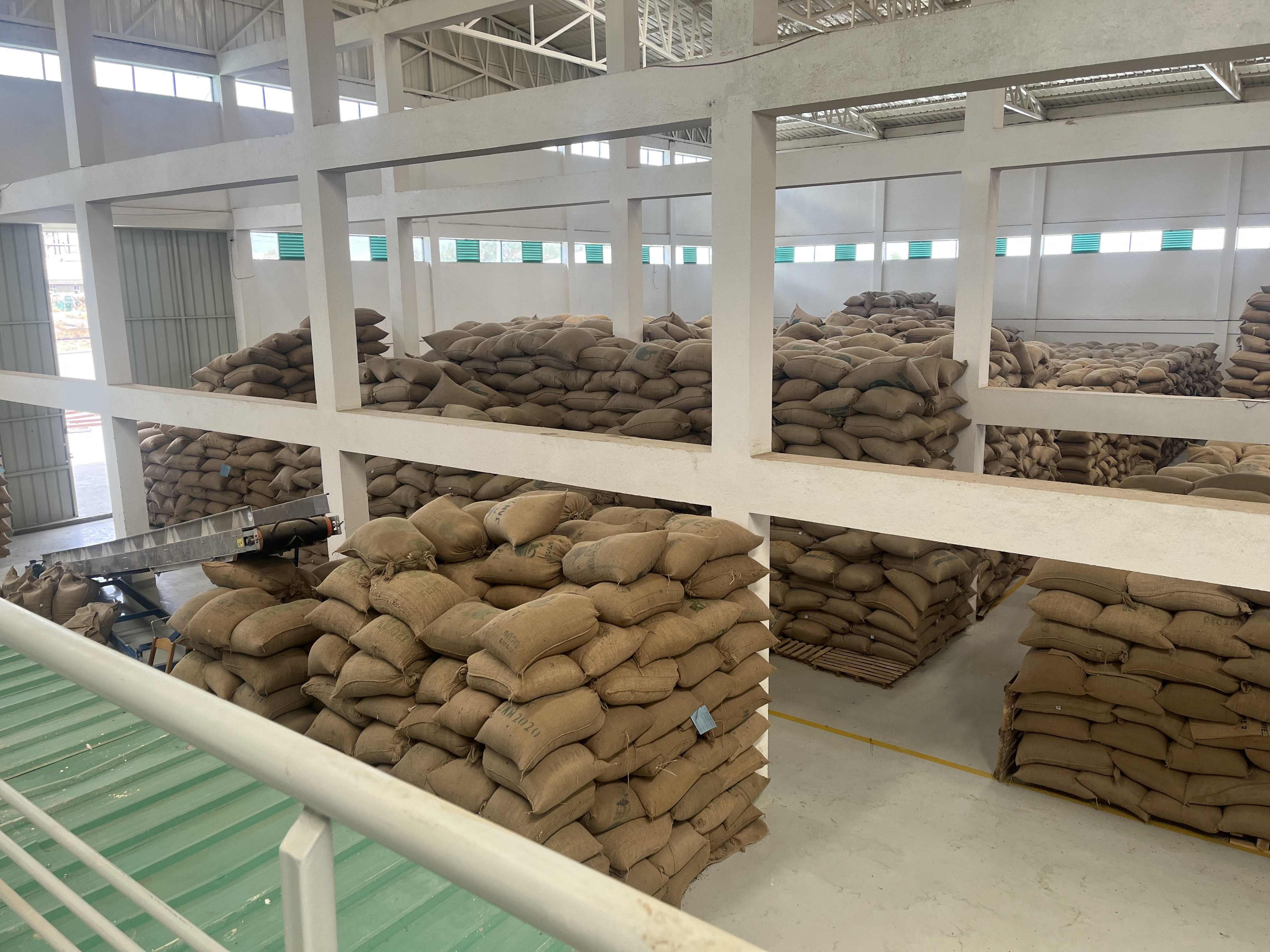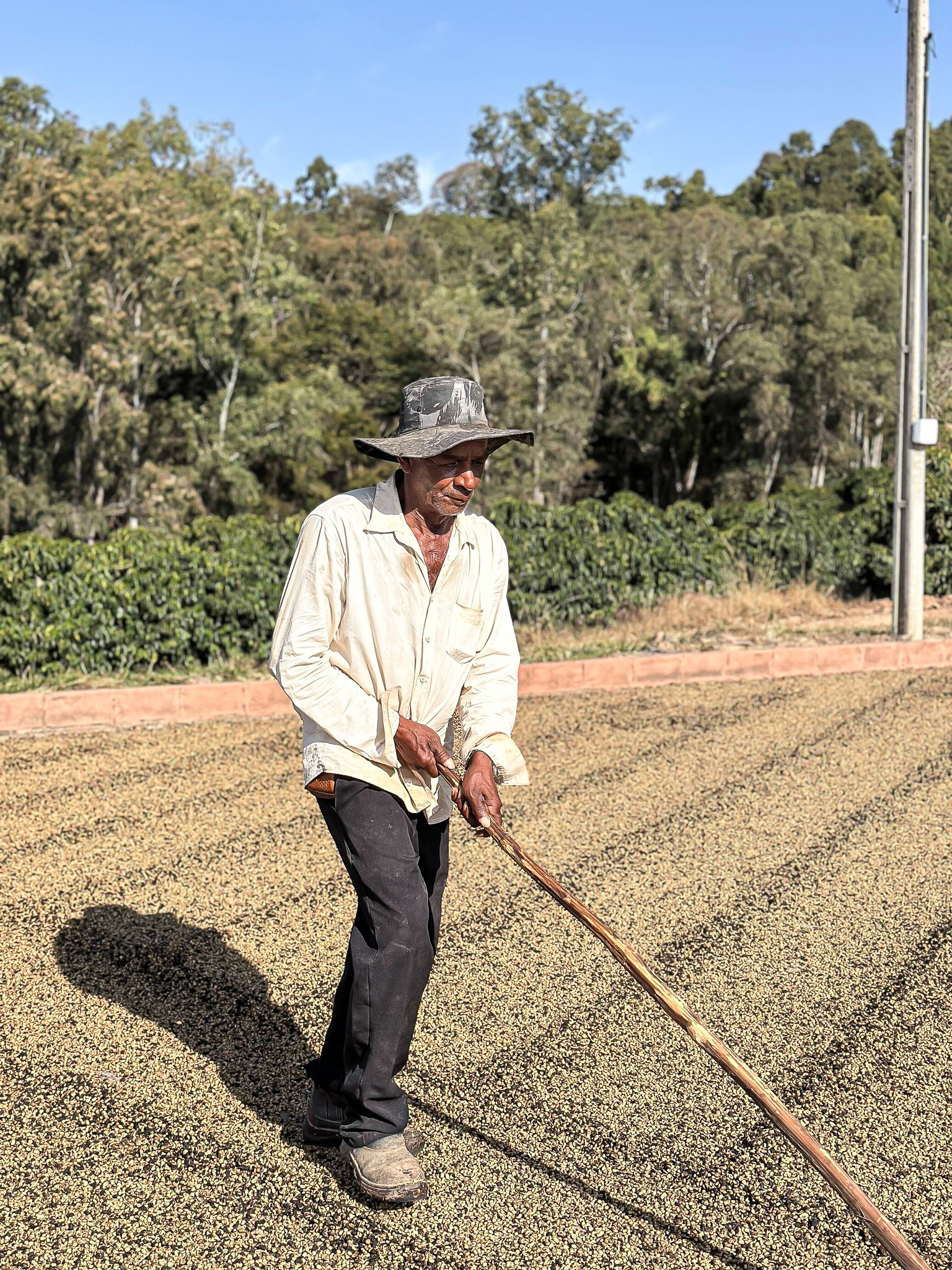Ethiopia

Ethiopia is our largest portfolio and origin by volume, with a focus on Grade 1 washed, naturals, & special preps.
We have been sourcing from Ethiopia since 2012, and it is the origin we buy the most volume from. In order to access the best coffee with the highest exportable quality, we have established a local team on the ground. We have a representative office in Addis Ababa, heavily involved in all stages of the product cycle. We generally work in the Southern Nations, Nationalities, and Peoples’ Region, as well as Agaro in the West. Our selection includes fruity, juicy, floral, and elegant flavour profiles.
Harvesting season
October - January
Arrival times
April – July
Quantities
50 – 100 bag lots
Packaging
30 or 60 kg grainpro bags
Cultivars
Heirloom, improved varietals from research center
Processes
Fully washed and natural, dried on raised beds
Flavour profiles
Fruit juice, fruit tea, floral, elegant
Usage
Widely used for filters, as single origin espresso and in espresso blends.
Shelf life
Normally holds up well for a year. We can never guarantee more than 6 months after arrival for any coffees.
With the geographical diversity and share size of coffee regions, we look for distinctive, exceptionally clean and atypical coffees that represent the terroir to its fullest. To maintain consistent quality, we are present across all stages of the value chain.
Our focus has been on washed Grade 1 coffees, naturals, and experimental preps. We import more than 20 containers annually, from the South and West of Ethiopia. The Southern regions we source from are Guji, West Arsi, Kochere, Yirgacheffe, and Sidama, as well as Limu and Agaro from the West.
Our shipments usually arrive to our warehouse between April and July. Our pre-contracting protocols are determined by price fluctuations and the estimated local supply and demand patterns. Larger volumes of 100+ bags are sourced from private or cooperative washing stations, whereas small or medium volumes usually come from single-producers, small producer groups, and estates. While we try to return to the same producers, cooperatives, and washing stations, having a team on the ground allows us to also develop new relationships and projects with a diverse range of suppliers.
Ethiopia’s coffee sector has developed a lot over the past years. New, complex flavour profiles have been discovered in well-known areas that were traditionally grouped based on their region. We felt that the complexity in flavour was not represented well enough within the existing categorisation method. We therefore developed our own classification system: the Ethiopian Flavour Wheel. It is a useful tool when selecting Ethiopian coffees, as it gives you a clear idea of what to expect in the cup.

A step-by-step overview

Most coffees in Ethiopia are organic by default, as they derive from seedlings provided by the Jimma Agricultural Research Center. Organic compost is common, and pruning practices are less common. A farmer typically has less than 1500 trees per hectare, with 1 tree typically producing cherries equal to less than 100 – 200 grams of green coffee.
The varieties are collectively referred to as Ethiopian Heirloom, which is a myriad of local, native Typica hybrids and new improved varieties based on the old strains. Some are named with a code such as 74/112 and 74/110, developed in the 1970’s at the Jimma Agricultural Research Center (JARC) for resistance to the coffee berry disease. These two varieties begin with “74” to indicate their cataloguing and selection in 1974.
The cherries are placed directly in the hopper that is connected to the pulping machine (a traditional Agaarde Disc Pulper). The coffee flows from the hopper down to the pulper, and the pulper removes the skin and pulp. The machine is designed to conduct grading of high and low quality (1st and 2nd). The coffee is then fermented under water in tanks for an average of 72 hours, but any time frame between 48 - 100 hours is within the norm. The coffee is graded again in channels, so that the cherries of lower quality (with a lower density) will float. They are removed, leaving the denser, higher quality beans to be separated as higher-grade lots.
Quality
Ethiopia, our largest source of coffee, operates within a regulated and intricate framework. Recognizing its significance and the challenges in upholding quality, we have made substantial investments in this region. Our dedicated team and office in Addis Ababa play a crucial role in maintaining our three core pillars throughout the entire value chain.
The quality control measures implemented in Ethiopia are diligently overseen by our on-ground team, ensuring every step is executed. This includes detailed procedures such as sharing data & protocols with producers,focus on improved processing, control over cherry selection, sample selection at all stages of the harvest: type samples, offer samples, pre-shipment samples, and continuous sample cupping at origin & HQ.
Additionally, our team in Addis Ababa supervises the milling, bagging, and shipping process to further guarantee the quality of our coffee. They have full control of export preparations, port transfers, documentation, and they personally seal our cargo before export.
Transparency
We prioritise established protocols and standards, particularly in our selection of export partners. Our dedicated on-ground team plays a pivotal role in this process, conducting firsthand visits to washing stations, gathering crucial information, and overseeing the entire production process. This hands-on approach ensures a transparent flow of information and maintains a high level of transparency in the coffees we select each season.
The Ethiopian government plays a key role in stabilising the coffee market by setting a minimum export price for coffee. Within our value chain in Ethiopia, we have distinct entities, including Private Exporters, Representatives, and Cooperative/Union segments. Private Exporters are responsible for purchasing parchment, identifying international buyers, and managing logistics. Representatives focus on assisting medium-sized farmers with logistical support and connecting them with potential buyers.
Meanwhile, Cooperatives are farmer-led organisations that own washing stations, while Unions serve as the primary exporters. The pricing of cherries is subject to fluctuation based on regional competition and demand, with farmers selling cherries by weight in Ethiopian Birr. To provide an accurate representation of cherry prices, we report weighted averages based on regional data supplied by our trusted partners. Washing stations sell parchment in 17kg units, priced in Ethiopian Birr.
Impact
Our operations in Ethiopia reflect our commitment to quality, transparency, and equitable compensation across the coffee supply chain. Understanding the intricacies of the Ethiopian coffee market, we've invested significantly to set a new standard in the industry. Our team in Addis Ababa meticulously oversees every stage of the value chain, ensuring that the coffee you sample is precisely what arrives in your warehouse. Partnering closely with Private Exporters, Representatives, Cooperatives, and Unions, we prioritise fair pricing and traceability. By adhering to rigorous protocols and standards, we uphold transparency and quality, guaranteeing access to the highest-scoring Ethiopian coffees on the cupping table.

About the origin
Farmers are typically smallholders with around 0.25 - 2 hectares of land. Cherries are usually sold and delivered to washing stations. These stations are either owned by or vertically integrated with an exporter. Parchment is delivered to an ECX checkpoint for grading. Once certified as exportable, parchment will then be cleaned and sorted, ready to be cupped by buyers
Ethiopia's coffee history
Linguists have determined that the earliest reference of coffee in Ethiopia is in Arabic documents dating back to the year 900. The documents refer to a strange new drink called “buna” that was being consumed throughout the country; “buna” is Oromiyan (a language spoken in Ethiopia) for coffee.
Arabica coffee has always grown wild in the hills of the Kaffa districts, with several coffee farms established in those areas. Today, 98% of the Ethiopian coffee farmers are smallholders. As coffee still grows wild in many areas, farmers harvest their crops utilising 4 different systems: forest coffee, semi-forest coffee, garden coffee, and plantation coffee.

Interested in this origin? Talk to your sales rep.




What’s new?
The latest updates delivered to your inbox.
Subscribe to our newsletter for the freshest news on origins, harvests, new producers, our coffee list, and market insight.

.jpg)














.jpg)



.jpg)
.jpg)

